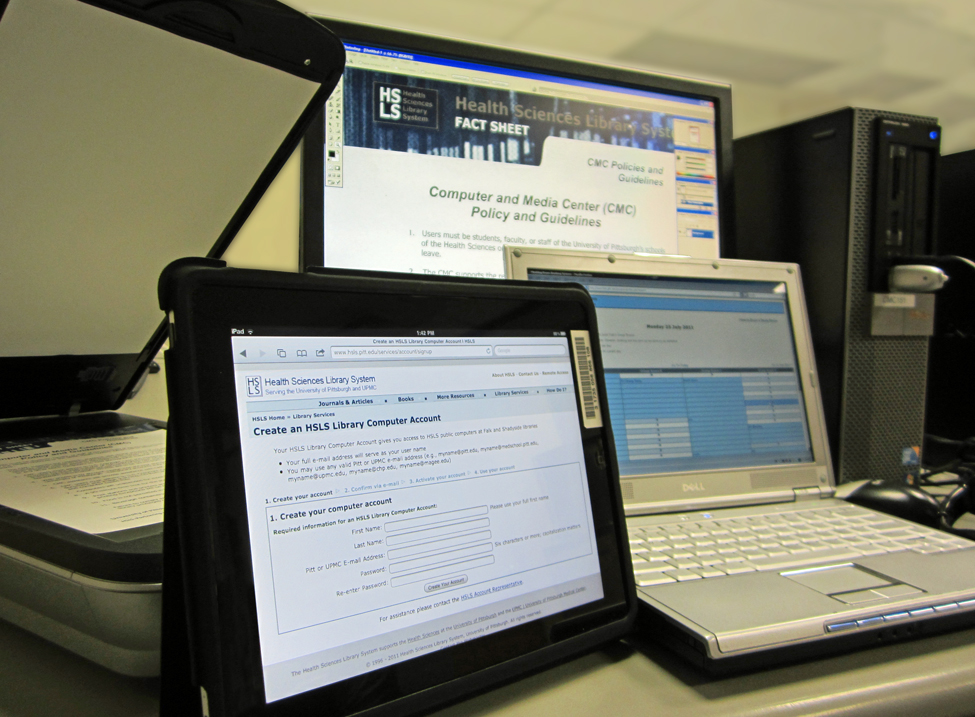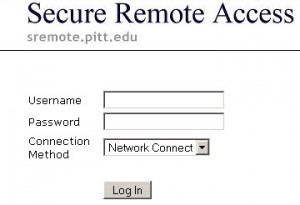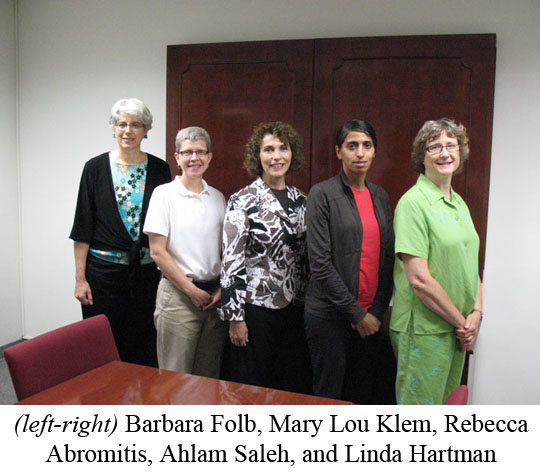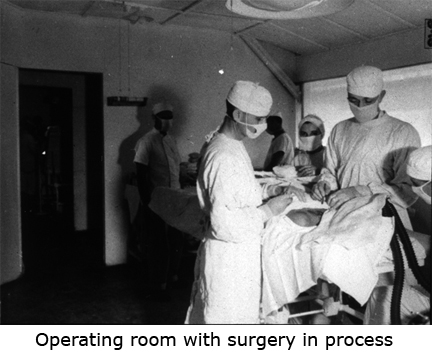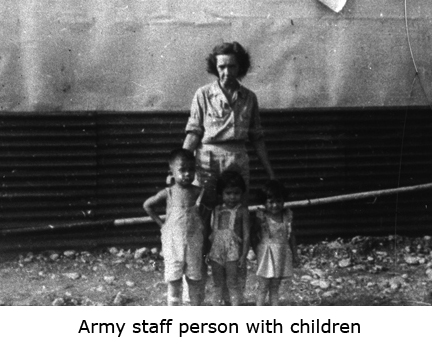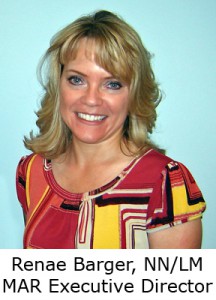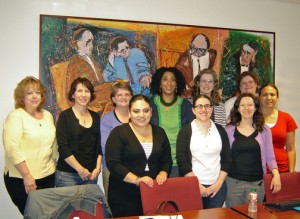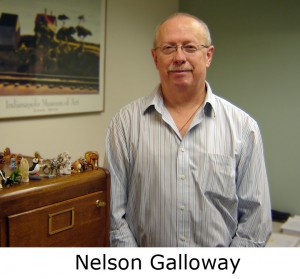HSLS offers classes on database searching, software applications such as Adobe Photoshop, bibliographic management, molecular biology and genetics, and library orientations. For more information visit the online course descriptions.
Classes are held on the first floor of Falk Library (200 Scaife Hall) in Classroom 1 and Conference Room B, and on the second floor in the Computer and Media Center Classroom 2. Some classes are also held in the Conference Room at UPMC Shadyside Libraries. All classes are open to faculty, staff and students of the schools of the health sciences at the University of Pittsburgh and UPMC.
No registration is required for any of these classes. Seating for classes is first-come, first-served, until the class is full. Classes marked with an asterisk (*) qualify for American Medical Association Category 2 continuing education credit.
Class schedules are subject to change. Please consult the online class calendar for the most current information.
HSLS ORIENTATION
Introduction to HSLS Resources and Services at Falk Library
(Meet inside entrance to Library)
| Wednesday, September 21 |
9-10 a.m. |
Offered upon request to groups or individuals. Call 412-648-8796.
Introduction to HSLS Services at UPMC Shadyside
Offered upon request to groups or individuals. Call 412-623-2415.
Finding Full-Text Articles at UPMC Shadyside
Offered upon request to groups or individuals. Call 412-623-2415.
SEARCHING DATABASES
PubMed Basics* (Falk Library Classroom 1)
| Monday, September 12 |
1-2:30 p.m. |
| Tuesday, September 27 |
11 a.m.-12:30 p.m. |
| Monday, October 17 |
11 a.m.-12:30 p.m. |
PubMed for Nurses* (Falk Library Classroom 1)
| Wednesday, October 12 |
1-2:30 p.m. |
MOLECULAR BIOLOGY AND GENETICS RESOURCES
Locating Gene/Protein Information* (Falk Library Classroom 2)
| Wednesday, September 7 |
1-3 p.m. |
Introduction to Vector NTI* (Falk Library Classroom 2)
| Wednesday, September 14 |
1-3 p.m. |
Genome Browsers 1* (Falk Library Classroom 2)
| Tuesday, September 27 |
1-3 p.m |
Genome Browsers 2* (Falk Library Classroom 2)
| Wednesday, September 28 |
1-3 p.m. |
SNPs & Genetic Variation* (Falk Library Classroom 2)
| Wednesday, October 5 |
1-3 p.m. |
Gene Regulation Resources* (Falk Library Classroom 2)
| Wednesday, October 12 |
1-3 p.m. |
Pathway Analysis Tools 1* (Falk Library Classroom 2)
| Wednesday, October 19 |
1-3 p.m. |
Pathway Analysis Tools 2* (Falk Library Classroom 2)
| Thursday, October 20 |
1-3 p.m. |
Cancer Informatics* (Falk Library Classroom 2)
| Wednesday, October 26 |
1-3 p.m. |
SOFTWARE TRAINING
EndNote Basics (Falk Library Classroom 2)
(Note: This class is usually full. Please arrive 15 minutes in advance to ensure seating.)
| Wednesday, September 7 |
9:30-11:30 a.m |
(Falk Library Classroom 2) |
| Friday, September 23 |
1-3 p.m. |
(Falk Library Classroom 2) |
| Tuesday, October 11 |
10:30 a.m.-12:30 p.m. |
(Falk Library Classroom 2) |
| Thursday, October 27 |
10:30 a.m.-12:30 p.m. |
(Falk Library Classroom 2) |
| Thursday, October 27 |
10 a.m.-noon |
(UPMC Shadyside Libraries) |
Adobe Photoshop for Beginners (Falk Library Classroom 2)
| Thursday, October 13 |
9-11 a.m. |
PowerPoint for Beginners (Falk Library Classroom 2)
| Tuesday, September 13 |
9-11 a.m. |
(UPMC Shadyside Libraries) |
| Tuesday, September 20 |
9-11 a.m. |
(Falk Library Classroom 2) |
Advanced PowerPoint for Presentations(Falk Library Classroom 2)
| Tuesday, October 25 |
9-11 a.m. |
The WOW Factor: PowerPoint for Posters(Falk Library Classroom 2)
| Thursday, September 8 |
9-11 a.m. |
Lunch With A Librarian
These informal, brown-bag lunches are held in Falk Library Conference Room B. Bring your own lunch. Drinks and dessert are provided. For more information visit the online descriptions.
Personal Genomics, Personalized Medicine, and You Monday
| Thursday, September 8 |
noon-1 p.m. |
EndNote Clinic (This LWAL is located in Falk Classroom 1)
| Thursday, October 13 |
noon-1 p.m. |
Classes
Back to School Basics (UPMC Shadyside Libraries)
| Wednesday, September 7 |
11:30 a.m.-12:30 p.m. |
Find it Quick (UPMC Shadyside Libraries)
| Friday, October 7 |
11:30 a.m.-12:30 p.m. |
Thursday @ Three HSLS UPMC Shadyside Libraries Information Series
These informal sessions are held in the Conference Room at UPMC Shadyside Libraries.
The Nuts and Bolts of Publishing an Article: Resources and Strategies for Aspiring Authors
| Thursday, September 22 |
3-4 p.m. |
Registered Research and Clinical Trial Databases
| Thursday, October 13 |
3-4 p.m. |
CUSTOMIZED CLASSES
Customized classes can be developed for your department, course, or other group.
LEARNING @ YOUR PACE
These online tutorials provide information on getting started at HSLS, focusing on the Web site and popular resources.
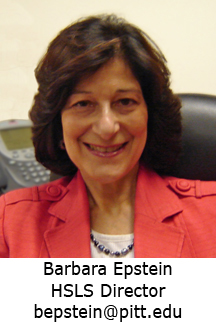 It seems as if the summer has barely started, but we’re already greeting new students and faculty, and planning fall term orientations and workshops.
It seems as if the summer has barely started, but we’re already greeting new students and faculty, and planning fall term orientations and workshops.
